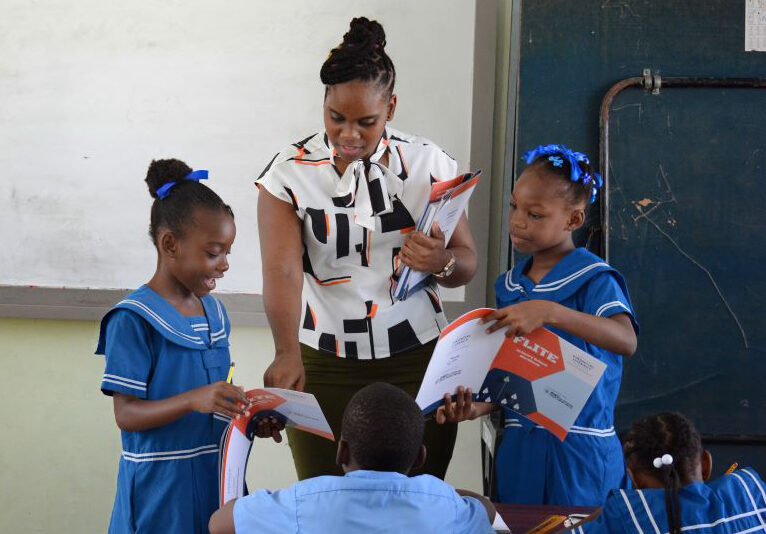Close to 500 students are participating in the pilot phase of the Ministry of Energy and Business’ National Financial Literacy Expansion Programme, which is underway in seven secondary and six primary schools.
And National Coordinator of the initiative, David Simpson, said there has been a great response from the educators and Class 2 and Second Form students to the programme, which will continue into part of Term 3.
“So far, the responses from the principals and teachers I have spoken to have been overwhelming. They are very happy the programme has finally reached the schools, and the students have exhibited high levels of interest and knowledge of money. In their sessions, some of them have been talking about what we use money for, payment systems, and they are quite knowledgeable,” he said.
“As one principal said, and I concurred, it is important to plant those seeds and to guide them accordingly, and by the time the children get to secondary school or become young adults, we should start to see the benefits.”
He explained that after the pilot phase, the government will be rolling out the programme in all schools and hopefully at all year levels over the next two to three years. Already, the chartered accountant said, there has been great interest in financial literacy from other schools.
“A few schools have already requested a few presentations for their senior students who will be graduating in Term 3, and I will facilitate them in the next few months,” he shared.
Financial literacy refers to individuals possessing skills and knowledge on financial matters that enable them to confidently take effective action that best fulfils their personal, family, business, and community goals.
The Barbados Workers’ Union (BWU) Co-operative Credit Union Limited is partnering with the ministry on the National Financial Literacy Expansion Programme for schools. Its chief executive officer Alana Cadogan stressed the importance of this initiative, saying “The earlier you start to understand and use various financial skills, the more successful you will be.”
She continued: “This programme will be the key to future generations of Barbadians making sound financial decisions that increase their chances of achieving financial freedom and success…. The BWU Credit Union is keen to ensure our youth can reap the rewards of saving, budgeting, financing, investing, and creating generational wealth. This programme aligns perfectly with our strategy to encourage, support, and educate our youth in good money management techniques.”
Principal of St Leonard’s Boys’ School Peter Cox described the exercise as “a useful…and important one”.
“We need to become more…knowledgeable, then proficient (in financial literacy), and the best place to start that is the home. If the home can’t provide that, then the next place is school, and as early in the school cycle as possible,” he contended, adding that within the financial literacy programme, seeds were being planted which would mature.
“I am happy about this exercise; I was anticipating it and I am glad it is here. I am hopeful that it is going to bear fruit, not just for the individual and the community, but for the country as well.”
Class 2 teacher at the Wilkie Cumberbatch Primary School Keneita Naitram said initially she was uncertain about how the financial literacy training would work for the young children. However, she stressed that children spending money at certain events had convinced her that the activity was timely.
“This would be a very good programme for them to learn from a young age to put aside money to save, so they can have a better relationship with money…. If they develop good money-spending habits from this age, then as they get older, they would take those things they learnt, continue with them, and hopefully they would not struggle as much as some…adults are struggling. So, I think it is very useful,” Naitram said.
She sat in on the first session last week and said it was “very interesting”, “practical”, and “a fun experience”, as the children had an opportunity to design their own money and discuss denominations.
Naitram added that in the discussions with the financial literacy facilitators, the children looked at the pros and cons of increasing the banknotes.
The teacher expressed the view that the financial literacy knowledge being imparted to the children would help them in their Mathematics classes when they examine money in the curriculum. (BGIS)




